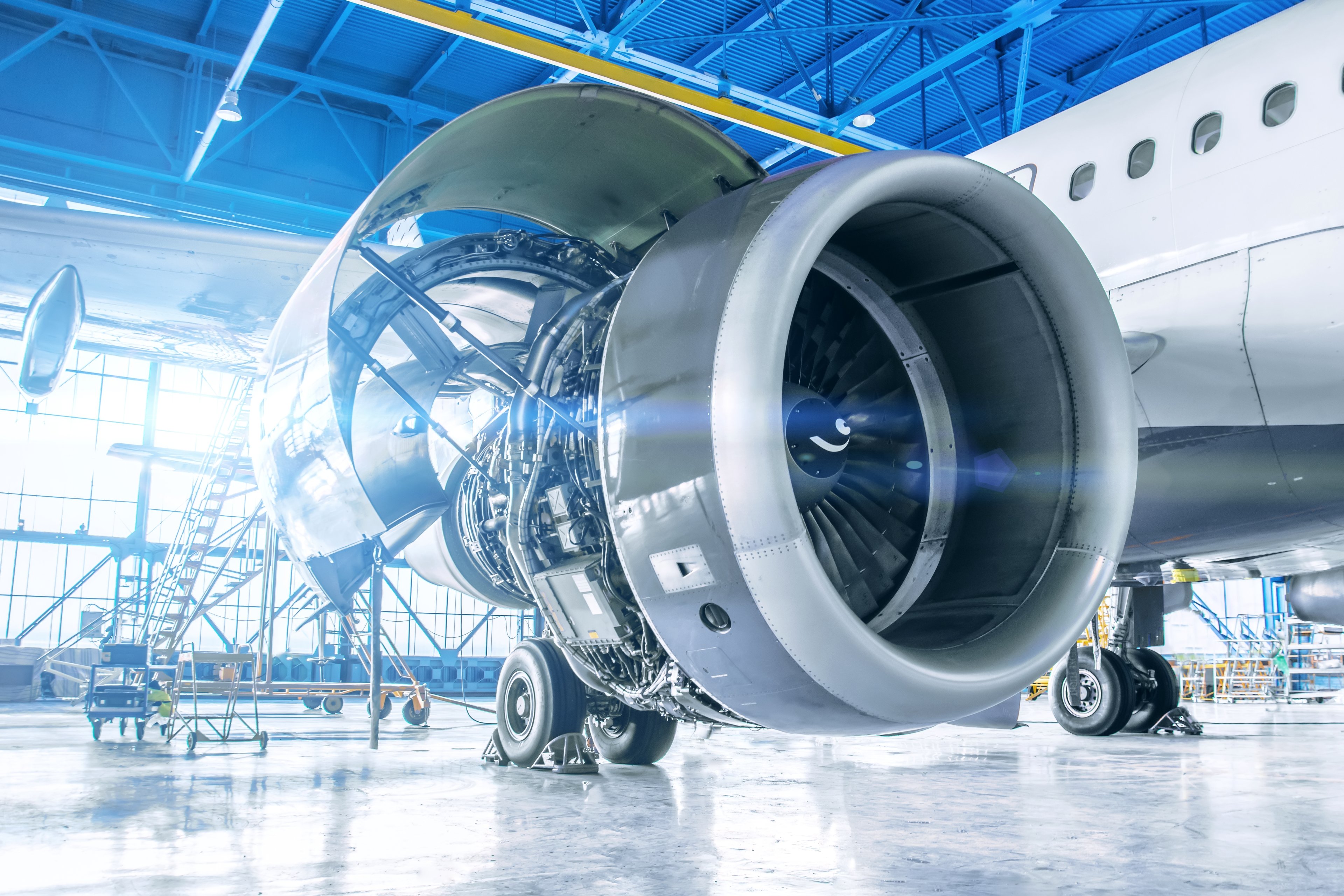Shares of General Electric (GE +1.62%) have plummeted by more than 40% this year, as the industrial conglomerate has slashed its earnings guidance and cut its dividend in half. Plenty of ink has been spilled regarding various management mistakes at GE, particularly the company's ill-timed bets on the power and energy industries.
From a high-level perspective, this criticism is well deserved. Furthermore, the downturn in the key power segment does justify a significantly lower GE stock price. That said, while some of GE's business segments face severe challenges, others are quite healthy. For example, the healthcare business is posting steady mid-single-digit revenue growth while gradually expanding its profit margin.
However, General Electric's real gem is its aviation segment. Rising sales of jet engines -- and growth in related engine services work -- could drive big gains for long-term investors in GE stock.

Strong growth in General Electric's aviation segment could boost GE stock. Image source: Boeing.
No problems in the aviation business
Today, General Electric is often described as a troubled company, but the same can't be said for its aviation segment. Through the first nine months of 2017, GE Aviation's revenue reached $20.2 billion, up 6% year over year, while segment profit surged 11% to $4.9 billion.
To some extent, this earnings growth reflects timing effects. For the full year, GE's forecast calls for organic revenue growth of 2%-4% in the aviation segment, along with a 5%-6% increase in operating profit. GE is even more bullish about 2018, projecting that the aviation segment's organic revenue and operating profit will both rise 7%-10% year over year.
Based on the midpoint of this guidance, aviation segment profit will reach $7 billion next year. Considering GE's planned divestitures and the declining profit contributions from the power segment and the oil and gas segment, this could account for about half of the company's industrial segment profit in 2018.
Jet engines are a long-term growth business
Some bearish analysts -- such as Deutsche Bank's John Inch -- think the aviation segment can't save GE stock because it's a cyclical business. However, this perspective seems to dramatically underestimate the long-term growth of commercial aviation.
Order backlogs are near record levels for Boeing (BA +0.00%) and Airbus (EADSY +1.74%), especially for single-aisle planes. That's great news for General Electric. The LEAP engine family -- built by GE's CFM International joint venture -- is the exclusive powerplant for Boeing's new 737 MAX. It is also one of two engine choices for the Airbus A320neo family.

Slightly more than half of all A320neos will come with CFM LEAP engines. Image source: Airbus.
Boeing recently surpassed 4,000 firm orders for the 737 MAX family. There are also hundreds of outstanding commitments for the 737 MAX, many of which will eventually turn into firm orders. Meanwhile, Airbus has more than 5,000 outstanding orders for the A320neo family, along with hundreds of commitments that have not been finalized yet.
At their current production rates, it would take Boeing and Airbus more than eight years to churn out all of the single-aisle jets they have on order. As a result, both companies plan to increase their annual output by about 20% over the next few years. Boeing and Airbus are also considering additional production rate increases, given that they still aren't building enough jets to meet demand.
Thus, the CFM joint venture is set to dramatically increase its engine production in the next few years. GE will benefit from rising service revenue as the installed base of CFM engines increases. Based on the impressive order pace and massive backlogs for the 737 MAX and A320neo families, the installed base of CFM engines could double by the late 2020s.
GE also has meaningful growth opportunities, albeit more modest, from its military jet engine business and its wholly owned commercial jet engine business. The latter powers the Boeing 777 and 787 families, as well as the upcoming Boeing 777X. The net result is that revenue and profit from GE's aviation segment could nearly double over the next decade. That should be enough to lift GE stock out of the doldrums.
Free cash flow conversion will improve
If there is any weakness to be found in GE's aviation segment outlook, it's that free cash flow conversion is expected to decline to 80% in 2018 from around 90% this year. This, however, is likely to be a short-term issue.
New engine designs are initially more expensive to produce than mature ones. In fact, they're often sold below cost. CFM production will shift rapidly toward the new LEAP-family engines over the next couple of years, which will create a significant cash flow headwind. GE will also face the same headwind on a smaller scale as it ramps up production of the GE9X engine for Boeing's 777X a few years down the road.
However, unit production costs for the LEAP engine fell by 20% in 2016 and are expected to decline by another 23% in 2017 and 23% in 2018. As unit costs continue to fall beyond 2018, free cash flow conversion should stabilize and then start to improve.
A secular growth business to boost GE stock
The jury is out on how much value General Electric will be able to squeeze out of the various businesses it wants to divest. Whether the company's power business ever makes a full recovery is also an open question.
However, it might not matter much for GE stock if the aviation business continues to thrive. A decade from now, GE Aviation is likely to be churning out well over $10 billion of free cash flow annually, before taxes, more than the entire company's projected 2018 cash flow. That's a compelling reason for long-term investors to bet on a turnaround for GE stock.








